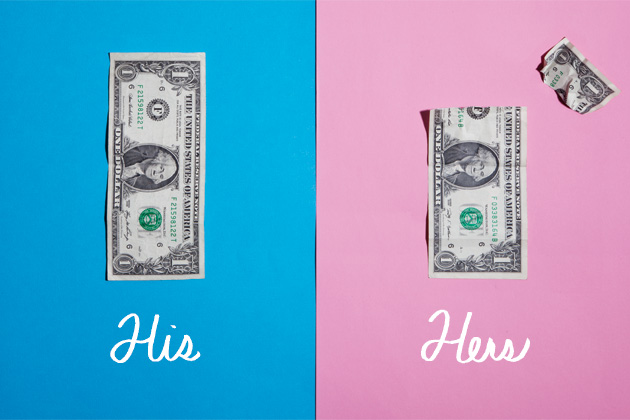A new report reveals wider pay gaps and poor workplace treatment for the female workers of southern states.
By Aria Bendix
The gender pay gap is a worldwide problem, but women in some places have it worse than others. A new report from the Institute for Women’s Policy Research (IWPR) reveals that working women in the South suffer some of the harshest inequalities in the U.S., not only in terms of how much they are paid, but how they are treated in the workforce.
To compare the status of women across the nation, the report grades each state based on six categories: political participation, employment and earnings, work and family, poverty and opportunity, reproductive rights, and health and well-being. Not a single Southern state was given an overall grade higher than a C-. In fact, 10 out of the 14 Southern states received some form of a D grade, as shown in the chart below.
_________
Best & Worst States in the South
__________
While not all of the report’s findings are this bleak, many of them reveal startling realities about just how divisive the workplace is for women in the South. When it comes to political participation, for instance, only one Southern state—North Carolina—earned above a D grade. Meanwhile, the report concludes that it will take more than 200 years for West Virginia and South Carolina to achieve gender parity in their state legislatures—almost double the time it will take to close the global pay gap.
Where the Southern pay gap is concerned, the report shows that the average woman in the South lost out on $6,392 in 2014 due to wage inequality. When this number is added up for all women in the South, the loss amounts to a whopping $155.4 billion per year.
One silver lining to these troubling statistics is the fact that women in the South tend to have better access to affordable childcare than those in the rest of the country, according to the report. In fact, the IWPR’s childcare index places half of the Southern states among the top 10 states with the highest-quality and most-affordable childcare in the U.S. On the other hand, only one Southern state—Washington, D.C., which is not really a state at all—legally offers paid leave to its employees (the Accrued Sick and Safe Leave Act mandates paid sick days). This region-wide disparity not only places a disproportionate burden on mothers, but particularly on black Southern mothers, who in four out of five cases are the main breadwinners in their families.
On a more positive note, the presence of so many working women in the South has resulted in a relatively high share of female-owned businesses. Nine out of the 14 Southern states surpass the national average for business ownership by women, the report says, with black women owning nearly 60 percent of all black-owned businesses there. And yet, black and Hispanic women in the South are still twice as likely to live in poverty as Southern women who are white or Asian/Pacific Islander.
“For every promising sign for women in the South, there are far too many concerning ones.”
Southern women fare a bit better in terms of reproductive rights. According to the report, 10 of the Southern states received a D or above in this category, and not one Southern state received an F. Still, the idea that a D is considered a “promising” grade points to a deeper problem of gender inequality in the South.
The report also shows that Southern women are more likely to to receive preventative care such as mammograms or HIV screening than women in other areas of the U.S. Sadly, these women are also more likely to die of heart disease or breast cancer, be diagnosed with diabetes or AIDS, or experience more days of poor mental health per month.
When it comes to the overall status of women in the South, the results are discouraging. “For every promising sign for women in the South, there are far too many concerning ones,” the IWPR President Heidi Hartmann said in a press release. The future is not hopeless, however. “Making sure women’s voices are heard at the ballot box and in the state house is central to improving women’s status in the South and beyond,” Hartmann added.
These realities of gender inequality are worth bearing in mind this Super Tuesday, as Southern states like Alabama, Arkansas, Georgia, Tennessee, Texas, and Virginia help to elect the future leader of our nation.
__________
This article appears courtesy of and appeared previously in the Atlantic CityLab.



